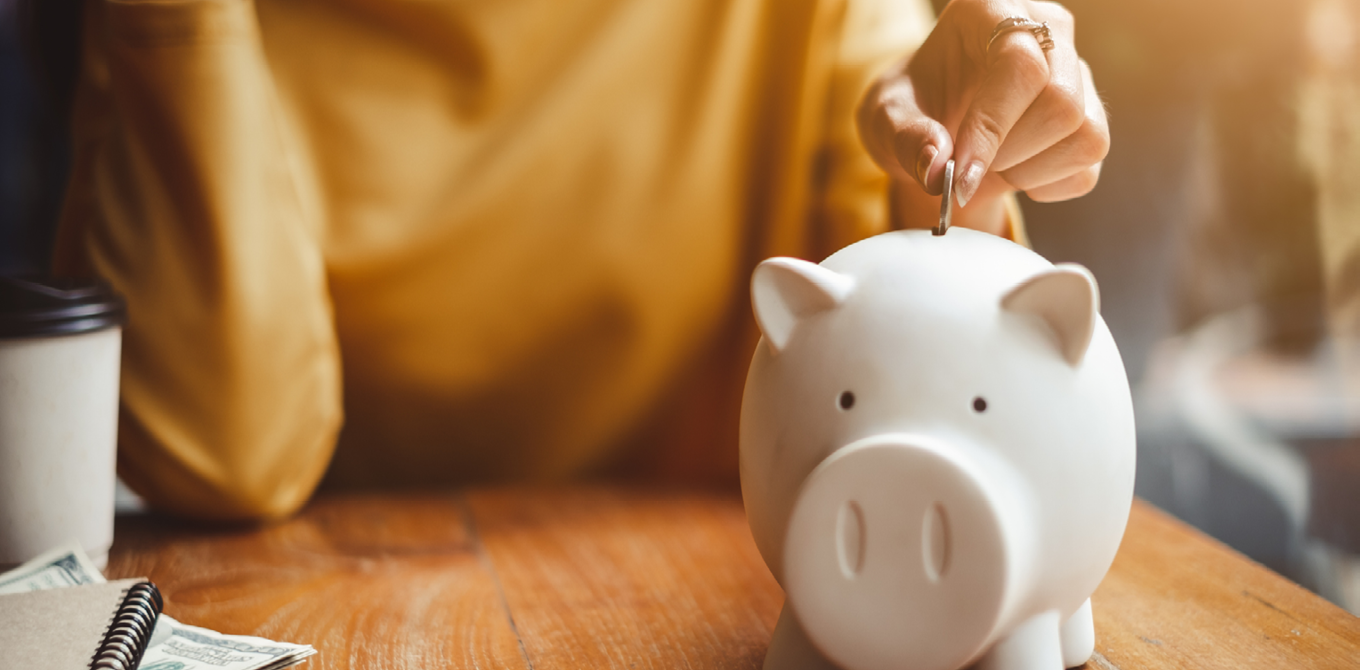How to break bad spending habits
Are your spending habits cutting into your paycheck and making it hard to save for the future? Taking an honest inventory of your patterns can help you identify places to cut back—especially on expenses that can sneak up on you.
To be clear, we're not telling you to change spending habits like buying avocado toast, lattes, or streaming subscriptions. These five bad habits are bigger than occasional indulgences, and they can be costly if you don't keep them in check. Read on to see if you identify with any of these bad habits and learn how to break out of them.
1. Keeping up with your friends' spending
Social pressures can be costly: The median cost to attend a bachelor or bachelorette party, for example, was a whopping $1,500 in 2022. That's not including the expense of attending (or standing up in) the wedding. Even day-to-day expenses can add up if your friends have different budgets for dining out and entertainment.
If you're stretching your own budget thin to keep up with friends, it's time to kick the habit. Be honest about what you can truly afford. It might require an awkward conversation or two, but good friends will understand. In the end, you might have to attend one fewer lavish bachelorette party, or opt to host a dinner at home instead of going out for a weekly sushi night.
2. Online shopping—especially after scrolling social media
If you find yourself online shopping after perusing your For You Page, you're not alone. About 85 percent of Generation Z says social media influences their purchasing decisions, particularly on Instagram and TikTok, according to a recent survey.
Whether you're wooed by pristine home décor on Pinterest or by an influencer's outfit on Instagram, don't click to buy right away. To break this habit, try setting a budget for online spending. You can also impose a waiting period to keep impulse spending in check. Give yourself a 24-hour waiting period to see if you still love an item after you've had a chance to sleep on it.
You can also follow the 24-hour rule for other bad shopping habits, like frequent Amazon orders or purchases where you find yourself loading up the cart to hit a shipping minimum.
3. In-app conveniences
What's not to love about apps that provide meal delivery and easy rides to the airport? The fees, for one thing.
Apps like Grubhub, DoorDash, Uber, Lyft, and Instacart offer convenience, but they also get pricey if you regularly rely on these services. Delivery and service fees vary from service to service—Instacart's delivery fee starts at $3.99, for instance, and DoorDash service fees start at a minimum of $0.60—and that's not including additional delivery surcharges and gratuity that can bring a $30 pizza to $50 by the time it arrives at your door.
Be proactive in determining when you can forego the extra expense of the apps. You might opt for curbside grocery pickup instead of door-side delivery, for example, or choose budget-friendly shared rides with other people along your route.
4. Indulging your furry, feathered, or scaled friends
Pet ownership can be rewarding, but it can also take a bite out of your budget.
Do your homework before investing in a new pet. The first-year costs of pet ownership can easily exceed $1,000. Each year after that, you must continue budgeting for food, routine vet visits, and boarding, in addition to unexpected expenses like emergency medical care.
A recent survey found that Gen Z spends more on their pets than any other generation at $1,885 a year, compared to an average spend of $1,163 a year. In the same survey, nearly half of Gen Z and 40% of Millennials said they've spent money on their pets for social media posts. Before you splurge on the perfect canine Halloween costume for the 'gram, think about whether that purchase really makes sense in your budget.
5. Weekend getaways
A short weekend trip can be deceptively expensive. Whether you need to budget for gas, train tickets, or air travel, a quick jaunt out of town can quickly exceed $1,000 with lodging. If you take several weekend trips over the course of the year, you might find that one weeklong vacation would be cheaper (and perhaps a better way to relax and unwind).
To save money, consider weekday travel: Hotels charge premium rates if you check in on the weekends, but Tuesdays are the cheapest days to check into a hotel. And what about Airbnb? For large groups booking longer stays, they can be a great deal, according to an analysis from NerdWallet. But for couples and solo travelers, the average hotel is about 29% cheaper than booking an Airbnb. Beyond the data, your own travel habits could factor into your decision to stay in a hotel vs. an Airbnb. A more expensive Airbnb might be worth it over a cheaper hotel if the Airbnb kitchen allows you to enjoy more affordable, home-cooked meals and save money on dining out, for example.
By reining in these five spending habits, you can free up money in your budget for your top priorities. You may decide some splurges are worth it, like attending your best friend's wedding or ordering a delivery meal when you're sick. You may also find opportunities to save and allocate money toward other goals, whether you're paying down debt, saving for a big expense or striving to set aside more money for retirement.




